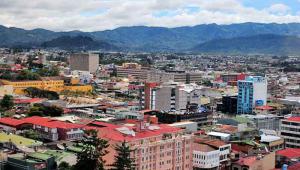By Vivienne Russell | 13 June 2013
Converting Africa’s impressive economic growth over the past decade into progress on meeting the Millennium Development Goals remains a major challenge, according to a joint report published at the African Union summit in Addis Ababa in May.
The MDG Report concluded that although Africa was the world’s second fastest growing region, its poverty-reduction rate was insufficient to meet the target of halving extreme poverty by 2015.
Globally, 15 of the 20 countries that made most progress towards the Millennium Development Goals were in Africa. They included Benin, Egypt, Ethiopia, Gambia, Malawi and Rwanda, according to the report, which was produced by the African Union Commission, the United Nations Economic Commission for Africa, the African Development Bank and the UN Development Programme.
Progress areas included education, with primary school attendance now becoming the norm, although quality remained a challenge. Africa had also succeeded in halting the spread of HIV/AIDS infections, malaria and tuberculosis, thanks to some strong political leadership and targeted interventions, the report said.
Major problems remained, including hunger and malnutrition, maternal and child deaths and poor resilience to environmental hazards.
African governments were urged to boost agricultural productivity through infrastructure investment and the development of financial markets. Economic diversification was also needed to create decent jobs.
In particular, Africa was urged to put structures in place to sustain development beyond the Millennium Development Goal timeline.
‘Africa must commit to inclusive, transformative development that reduces income poverty, creates decent jobs, enhances access to social services, reduces inequality and promotes resilience to climate-related hazards,’ according to the report’s foreword, signed by AUC chair Nkosazana Dlamini Zuma; UNECA executive secretary Carlos Lopes; AfDB President Donald Kaberuka; and UNDP administrator Helen Clark.












